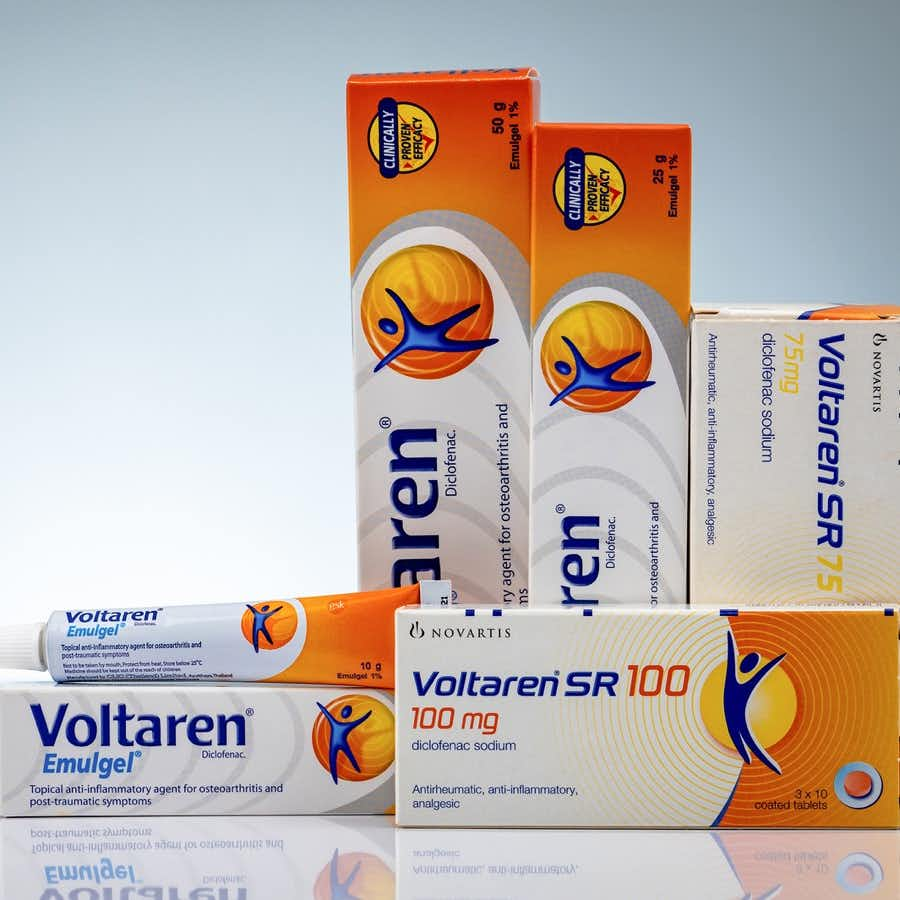
When you are in pain it is hard to function. People who have osteoarthritis of the spine, hips or knees have difficulty getting around, let alone exercising. There are no perfect drug solutions for treating this kind of inflammation. We were surprised to learn that some doctors are still prescribing opioid pain relievers for osteoarthritis. That might have been common a decade ago, but these days it seems inappropriate. What else can people do when they are in chronic pain? Why aren’t more doctors prescribing topical NSAIDs?
Opioids for Osteoarthritis?
Q. I have osteoarthritis of the knees and back. Some days I can barely get out of bed. My primary care doctor advised me to take hydrocodone every eight hours as needed.
Taking opioids regularly worries me, so I haven’t taken this medicine recently. What else can I do to deal with the pain and stiffness?
Alternatives to Opioids?
A. You and millions of other arthritis sufferers are caught between the proverbial rock and a hard place. Oral medicines like opioids or NSAIDs (celecoxib, diclofenac, ibuprofen, naproxen, etc) have potentially serious side effects. You can read more about oral NSAIDs at this link.
Opioids Were No Better Than…
In a study published in JAMA (March 6, 2018), opioids proved no better for osteoarthritis than medications like acetaminophen, oral NSAIDs, antidepressants (amitriptyline, etc) or liniments containing capsaicin or lidocaine.
What About Topical NSAIDS?
Topical NSAIDs such as diclofenac gel or patch (Flector patch, Voltaren Gel, etc) may have fewer systemic side effects than oral medicines (British Journal of Sports Medicine, May, 2018). Some people get substantial benefit from topical NSAIDs while others are super sensitive to side effects.
Readers Share their Stories with Topical NSAIDS:
William in California got relief from the Flector Patch:
“I went off Celebrex after many years and switched to Pfizer’s “Flector Patch,” which gave me twice the pain relief of Celebrex.”
Chas in New Jersey reports:
“I have been using Diclophenac gel (previously Voltaren Gel) for years for my arthritis pain, ever since the price of Flector patches went through the roof. I have never had any adverse effects with either version of diclophenac gel, abdominal or otherwise, except occasional skin irritation.”
Harriet in Connecticut loves her “magic patches”
“I’ve been using Voltaren Gel and Flector patches( I have called them “magic patches” for years. Oral NSAIDS cause me major stomach pains. I use the gel for knees, feet, and hip arthritis pain and it works well enough so I can continue on my demanding exercise schedule.
“These meds are not going through your liver, kidneys and other sensitive internal organs at the same rate as oral meds. So far, and this is 3 years and counting, I’m not having any reaction issues. I get these meds at my local Connecticut pharmacy. They do require a prescription from my doctor.”
Tom in Spokane, Washington developed a skin sensitivity to topical NSAIDs like Voltaren Gel:
“About 15 years ago I was prescribed Voltaren Gel (VG) for chronic pain on the top of my foot. I used it with moderate to great success for about two years. At that point I developed a severe rash. I had developed an allergy to this topical medicine. When I stoped using VG the rash stopped. This past January I developed medial tendonitis in my right elbow. I attempted to use VG and once again got a severe rash within about 3 days.”
Jesse in Texas could not tolerate topical NSAIDs:
“I used Pennsaid gel and within weeks developed painful stomach problems diagnosed as gastritis by upper GI scope. The doctor said it was caused by Pennsaid. I was told never to take an NSAID again. That is unfortunate because it was the only thing that gave any pain relief for my knees. I had with a torn meniscus. The burning GI pain kept me awake at night until it healed.
“The Pennsaid gel had a warning that it can cause heart damage, ulcers and death. So now, despite having CRPS (Complex Regional Pain Syndrome) I am going to have knee surgery. It may not be helpful at all and could make me worse.”
Learn More About Alternatives for Arthritis!
You can learn more about the pros and cons of topical NSAIDs as well as nondrug approaches to easing joint pain in our book, The Graedons’ Guide to Alternatives for Arthritis. It is $12.95 plus $4 shipping and handling from:
Graedon Enterprises, Inc., AFA
PO Box 52027
Durham, NC 27717-2027
You can also order it from online book store at www.PeoplesPharmacy.com.

